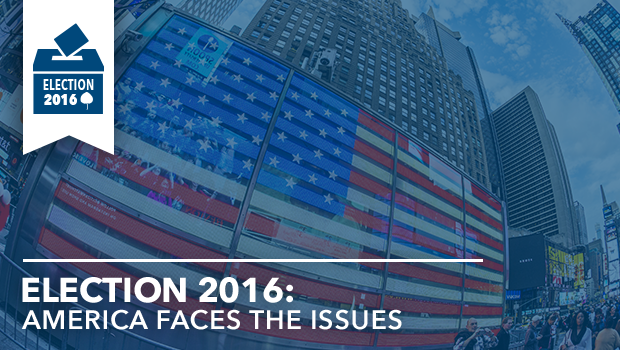It’s a famous political cliché that “demographics is destiny” in elections. Right now, there is a major demographic shift happening in America. Hispanics today account for 17 percent of the US population, and are projected to reach 25 percent by 2050. Already, Latinos account for one in four students in public schools. Today’s students will be tomorrow’s teachers, doctors, lawyers, entrepreneurs, and voters. The political party that is first to understand what this growth means for the country and to thoughtfully engage with Latinos will not only put themselves in a strong electoral position for years to come, but help this community and the nation thrive and prosper.
Both political parties have failed to do enough to understand and invest in Latino-Americans, who are more nuanced voters than they are given credit for being. Time and time again, polls have shown that the principal priorities for Latinos are jobs, the economy, education, and health care. In fact, a recent Nielsen Harris Poll survey done in partnership with the Aspen Institute Latinos and Society Program showed that for creating opportunity, Latinos rated “affordable, quality health care” and “holding elected officials accountable” as the most effective factors.
Democrats have certainly aligned themselves with the views of this community on a number of issues, not least of which is immigration policy. While not a priority issue for the majority of Latinos, immigration policy serves as a proxy for whether or not candidates generally support the community. But Democrats have not done a great job of reaching out to Latinos either, taking for granted that the Latino vote will always be theirs. A Republican presidential candidate was the first Latino to ever win a state in a presidential primary. But some Republican candidates have also spread misconceptions about the Latino community for perceived political gain. Neither party has invested in getting out the Latino vote in the numbers that would be expected for such a critical constituency now and increasingly in the future.
Political parties can engage with Latino-American communities more effectively if they commit to understanding Latinos’ long-standing history in this country, rich culture, and policy priorities. The Latino-American community is not a homogeneous group of immigrants working in a few specific industries who only care about immigration policy.
Social changes can create myths about the community driving that change, and that has clearly happened with Latino-Americans. Surveys show that great numbers of Americans believe that the majority of Hispanics living in the United States are immigrants who come here illegally. Others think that they increase crime rates and take from our social services without contributing their fair share.
But the driver of this demographic change is US-born Latino-Americans, not immigration. Only 16 percent of Latinos in the US are undocumented, according to a 2015 Pew Research Center Hispanic trends report, and there is net negative migration of Mexicans to the US. The great majority of Latinos are born here or came to the states legally.
The current oversimplification of the Latino-American community or its outright scapegoating for many of America’s problems is not only harmful to the millions of Latinos living here, but also to the nation’s future.
With demographic growth comes a series of opportunities. The growth of the US work force will rest disproportionately on Latino-Americans who will fill jobs, start new businesses, and contribute to the tax base. Latino-Americans are starting new businesses at three to four times the rates of the rest of the population. The number of new businesses for non-Latino-Americans declined 2 percent from 2007 to 2012, while Latino-owned new businesses grew 47 percent in the same period, according to a study by the Stanford Latino Entrepreneurship Initiative. New businesses lead to employment and jobs. And, according to census data, Latino-Americans contribute more to social security than they take out because the population base is so young.
So how would a political party successfully engage the Latino-American community? First, parties need to engage with the community beyond presidential election cycles and battleground states. Second, they need to invest in and use Latino-owned or operated firms that have deep ties and understand the community to inform their campaigns and get out the vote efforts. Finally, any politician or lawmaker should predicate their engagement on ensuring the full participation and success of the Latino-American community providing more ladders to move out of poverty and into the middle class by investing in quality education and pathways to good jobs and careers.
Getting out the vote on election day is part of any campaign, but a successful engagement strategy requires a bigger investment in developing Latino-American civic participation of all kinds, from voting and volunteerism, to organizing and running for public office, to advocacy and beyond. Inclusive engagement that makes sure Latino-Americans are part of decision-making year-round, not just during Hispanic Heritage Month or the presidential election cycle, is key.
The Aspen Institute Latinos and Society Program’s mission is to promote understanding of how the success of the American Latino community, and the success of the nation, are deeply intertwined. The nation’s two major parties misunderstand or overlook the great potential of Latino-Americans at their own peril. Our future requires an inclusive society that invites all Americans to participate and contribute. The new administration, whichever party it will be, will be forced to contend with the demographic reality of an America where Latino-Americans are becoming a bigger part of society than ever before.


